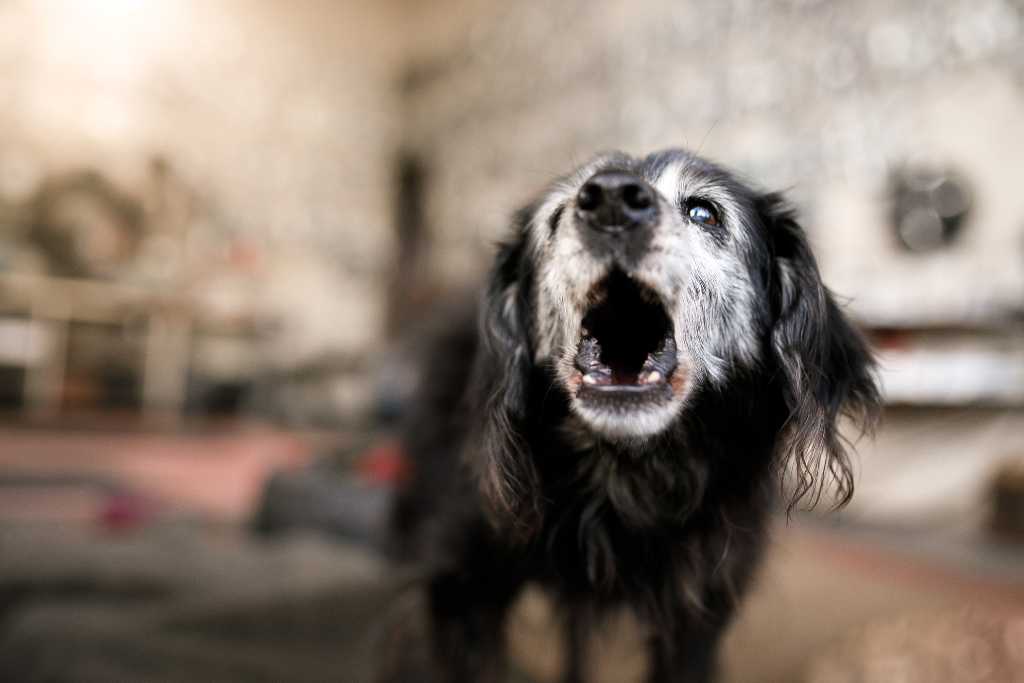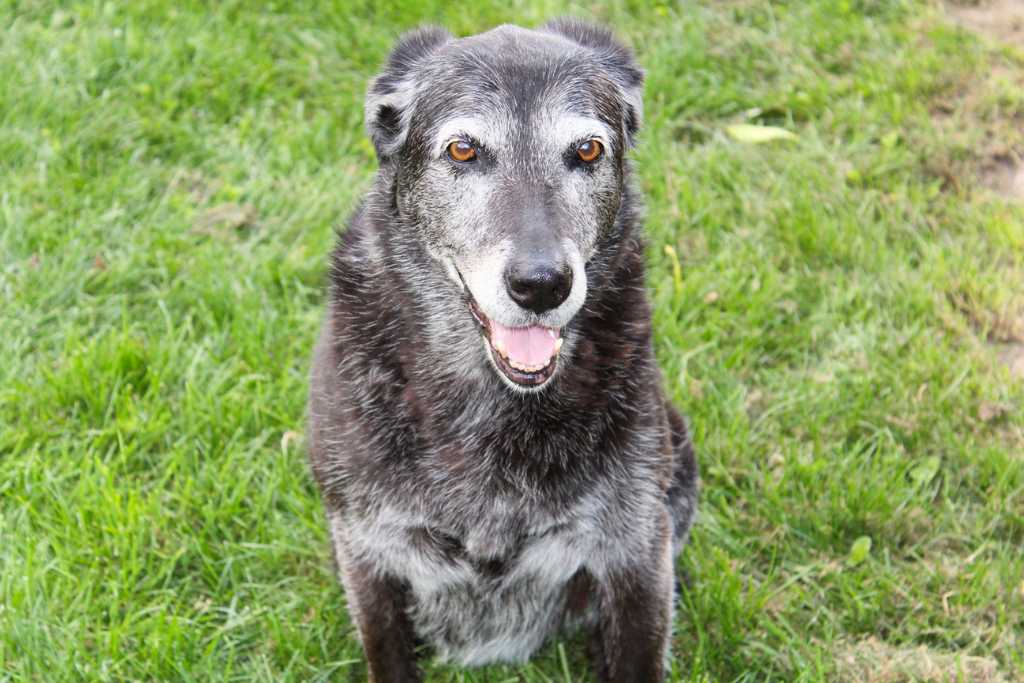MORE TO SHIP FREE 🚚
NICE. SHIPPING IS FREE 🎉
MORE TO REDEEM GIFT 🎁
YAY. REDEEM A FREE GIFT 🥳
YOUR CART IS EMPTY. SHOP NOW.
As dogs grow older, they become more vulnerable to various health issues. While an increase in napping is expected, ageing dogs may experience more severe conditions like chronic kidney disease, hearing loss, or canine dementia. The challenges of aging in dogs extend beyond physical decline; cognitive decline is also a significant concern. Regrettably, many older dogs experience dog dementia, akin to Alzheimer's disease in humans.

Dog dementia, also known as canine cognitive dysfunction (CCD), is a condition that affects the cognitive functions of ageing dogs. It is characterised by a decline in mental abilities similar to the cognitive decline seen in humans with Alzheimer's disease. While the specific causes of dog dementia are not fully understood, it is believed to be associated with changes in the brain, including the accumulation of abnormal proteins.
The signs of dog dementia can vary but often include disorientation, confusion, changes in sleep patterns, altered social behaviour, house soiling, and a decrease in activity levels. Dogs with dementia may exhibit behaviours such as pacing, wandering, lack of recognition of familiar faces, changes in appetite, and excessive vocalisation.
As there is currently no cure for dog dementia, the focus is on managing the symptoms and improving the quality of life for affected dogs. This may involve dietary changes, mental stimulation, regular exercise, and, in some cases, medications prescribed by a veterinarian. Early detection and intervention play a crucial role in providing the best care for dogs suffering from cognitive decline. Regular veterinary check-ups and open communication with your veterinarian are essential for addressing the unique needs of ageing dogs and managing conditions like dog dementia.
Dementia commonly affects older dogs, with signs beginning around nine years of age. The disease progresses slowly, starting with only one or two signs before the dog shows full-blown indicators. Being attuned to these signs allows for early detection and intervention. Here are some common signs of dog dementia:
1. Disorientation and Confusion
Dogs with dementia may appear disoriented, getting lost in familiar surroundings or seemingly forgetting the layout of their own home. For instance, they may find themselves trapped in a corner, wander without a clear purpose, or approach a door, anticipating to be let out on the side with the hinges rather than the side that opens.
2. Changes in Sleep Patterns
Your dog’s sleep patterns will change. Irregular sleep patterns, nighttime restlessness, or increased daytime napping can indicate cognitive decline in dogs. Dogs with dementia might sleep more during the day, but mostly they will start waking (pacing) in the night.
3. Altered Social Behavior
The social dynamics your dog shares with people and other pets can undergo significant changes. Previously independent dogs might become clingy, while once-friendly dogs could become aloof. Canines experiencing dementia may exhibit withdrawal, a decreased interest in interacting with family members or fellow pets, and may display signs of anxiety.
4. House Soiling
Your dog might begin to poop and pee in the house. This is a key example of “forgetfulness”. It appears as though the dog has either forgotten its training or “forgot” to communicate the need to go outside to the owners. Some pet owners may observe instances where their dog forgets to eat or overlooks other familiar signals and training cues.
5. Changes in Activity Level
Your dog's activity levels may undergo changes. They might become more restless and active, or conversely, they could become lethargic when they were previously quite energetic.

While canine cognitive dysfunction (CDS) doesn't have a cure and tends to worsen progressively, there are strategies to manage and slow down its impact. Your vet may suggest medications for dog dementia to slow oxidative damage in the brain, and aid in blood circulation. Supplements such as SAMe (S-adenosylmethionine), vitamin E, and ginkgo biloba, acting as antioxidants, can also be discussed with your veterinarian. Additionally, dietary approaches, such as incorporating fish oils or medium chain triglycerides (MCTs), have proven beneficial and are found in specific veterinary diets.
The Sundowner Syndrome
Sundowner syndrome is a facet of the sleep-wake cycle disturbance seen in dogs suffering from dementia. Dogs experiencing this may exhibit increased daytime sleepiness, followed by restlessness and agitation during the night, akin to the evening flare-ups observed in individuals with Alzheimer's disease. Behaviours such as pacing, wandering, or inexplicable barking may occur, disrupting both your dog's and your own sleep.
To address this aspect of your dog's CDS, it is recommended to incorporate mental and environmental enrichment as well as regular exercise. Establishing a predictable schedule for these activities can help your dog anticipate and remember them better. Providing increased mental and physical stimulation during the day, may contribute to managing Sundowner syndrome in dogs with cognitive dysfunction.
While ageing is inevitable, there are steps you can take to support your dog's cognitive health and potentially delay the onset of dementia:
1. Balanced Diet
Ensuring your dog receives a balanced and nutritionally complete diet is crucial for supporting overall health, including brain function. Essential fatty acids, such as Omega-3 and Omega-6, play a vital role in cognitive health. These fatty acids are found in sources like fish oil and certain plant oils. A well-rounded diet with appropriate nutrients helps maintain the health of your dog's brain cells and supports cognitive function.
2. Mental Stimulation
Engaging your dog in activities that stimulate their mind is key to preventing cognitive decline. Puzzle toys like the Pawzler Innovative Modular Dog Puzzles provide mental challenges that encourage problem-solving, keeping your dog's brain active. Unlike most “static” dog puzzle toys, Pawzler uses a unique modular approach that allows you to continuously re-invent the toy. You can rearrange the pawzles (puzzle pieces), change the pawzles for different play style or merge bases to keep the fun going.
Interactive games, like hide-and-seek or fetch, provide both physical exercise and mental stimulation. Nosework toy stimulates the dog’s cognitive abilities and encourages them to think and explore. Studio Ollie Nosework Dog Toys are highly beneficial for providing mental stimulation to dogs. Apart from toys, regular training sessions, even for simple commands, help maintain cognitive sharpness and strengthen the bond between you and your furry friend.

3. Regular Exercise
Physical activity is not only essential for maintaining a healthy weight but also plays a crucial role in promoting overall well-being, including mental health. Exercise promotes better circulation, including increased blood flow to the brain. This improved blood flow ensures that the brain receives an adequate supply of oxygen and nutrients, crucial for optimal cognitive function. Regular exercise also helps reduce stress, anxiety, and boredom, contributing to a happier and mentally balanced dog. It's important to note that the type and intensity of exercise should be appropriate for the dog's age, breed, and health condition. Tailoring the exercise routine to your dog's specific needs ensures that they receive the maximum cognitive benefits while minimising the risk of injury or overexertion.
4. Socialisation
Socialisation with other dogs is not only beneficial for a dog's overall well-being but can also contribute positively to their mental health, including cognitive function. Interacting with other dogs provides mental stimulation, as it involves communication, play, and problem-solving. Engaging in social activities keeps the brain active and can contribute to cognitive health. So, regular socialisation may help prevent cognitive decline by maintaining the dog's overall mental and physical health. Cognitive stimulation through social interactions can be particularly important for ageing dogs to keep their brains active and engaged. However, when facilitating socialisation with other dogs, it's important to ensure that the interactions are positive and supervised. Be mindful of your dog's temperament and comfort level.
5. Veterinary Check-ups
Regular veterinary check-ups are vital for detecting potential health issues early on. As dogs age, they become more susceptible to various medical conditions, including cognitive dysfunction. Your vet can monitor your dog's overall health, conduct cognitive assessments, and provide guidance on adapting care as needed. Early detection of issues allows for timely intervention, enhancing the quality of life for your ageing dog.
6. Supplements
Consulting with your veterinarian about supplements is important for addressing specific cognitive needs. Antioxidants, such as vitamin E, and omega-3 fatty acids, found in fish oil, can support brain health. There are also special formulation like this K9 Natural Brain & Eye Health Oil (Flaxseed, Hoki, Blackcurrant Seed & Avocado) For Dogs, developed to support the brain and eye health of puppies and ageing dogs. Your vet can recommend appropriate supplements based on your dog's individual health requirements and potential cognitive concerns.
7. Routine and Consistency
Maintaining a consistent routine is particularly beneficial for dogs experiencing cognitive decline. Familiarity provides comfort and reduces stress. Stick to regular feeding times, walks, and play sessions. Avoid unnecessary changes to the environment, as predictability helps your dog feel secure. Consistency in daily activities contributes to a stable and reassuring environment for dogs navigating cognitive challenges.

Living with a dog affected by canine cognitive dysfunction can be quite challenging, especially if your once-friendly companion exhibits behavioural changes and house soiling. Witnessing the decline in your dog's quality of life can be emotionally taxing, leading many owners to grapple with the difficult decision of when to consider euthanasia for a dog with dementia.
Despite these challenges, it's essential to recognize that dogs with dementia can still enjoy full life spans. It's crucial not to underestimate the importance of providing mental and environmental enrichment to enhance their overall well-being. Drawing a parallel between the brain and a muscle - "use it or lose it" - underscores the significance of engaging in activities such as training, puzzle toys, and regular exercise to support a dog's cognitive function. However, it's vital to maintain realistic expectations, acknowledging that the primary goal is not necessarily achieving success in training but rather exercising the brain for the overall well-being of the dog.

Comments will be approved before showing up.
A practical guide to dog anxiety. Learn how stress and anxiety affect dogs, how to spot the signs, and explore...
Learn the causes of dog itchy paws (allergies, infections, cracks) and effective home remedies including soaks, balms, and diet changes...
Ever seen your dog basking in the sun? It may look like laziness, but dogs love sunbathing for several fascinating...



